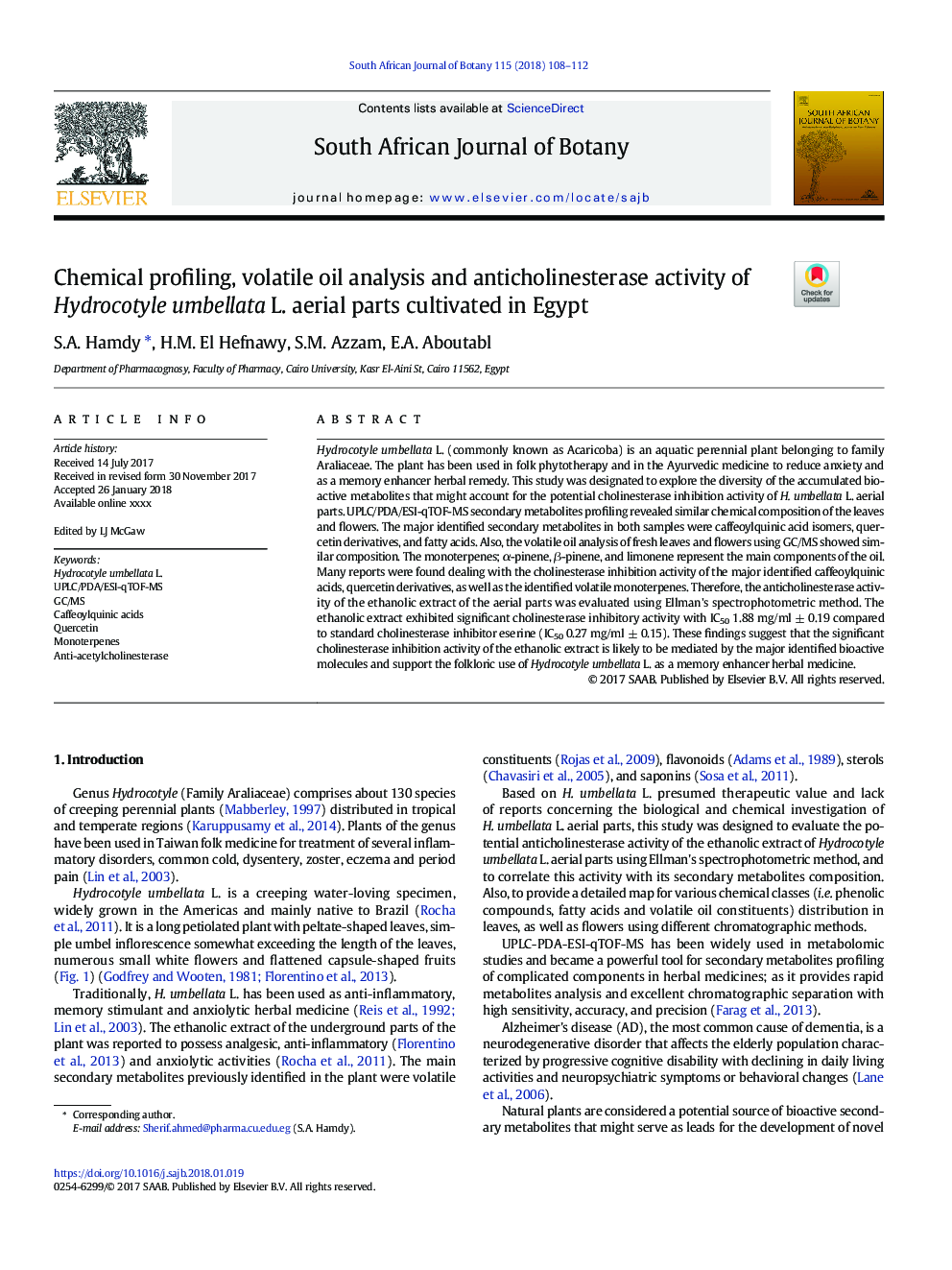| Article ID | Journal | Published Year | Pages | File Type |
|---|---|---|---|---|
| 8882335 | South African Journal of Botany | 2018 | 5 Pages |
Abstract
Hydrocotyle umbellata L. (commonly known as Acaricoba) is an aquatic perennial plant belonging to family Araliaceae. The plant has been used in folk phytotherapy and in the Ayurvedic medicine to reduce anxiety and as a memory enhancer herbal remedy. This study was designated to explore the diversity of the accumulated bioactive metabolites that might account for the potential cholinesterase inhibition activity of H. umbellata L. aerial parts. UPLC/PDA/ESI-qTOF-MS secondary metabolites profiling revealed similar chemical composition of the leaves and flowers. The major identified secondary metabolites in both samples were caffeoylquinic acid isomers, quercetin derivatives, and fatty acids. Also, the volatile oil analysis of fresh leaves and flowers using GC/MS showed similar composition. The monoterpenes; α-pinene, β-pinene, and limonene represent the main components of the oil. Many reports were found dealing with the cholinesterase inhibition activity of the major identified caffeoylquinic acids, quercetin derivatives, as well as the identified volatile monoterpenes. Therefore, the anticholinesterase activity of the ethanolic extract of the aerial parts was evaluated using Ellman's spectrophotometric method. The ethanolic extract exhibited significant cholinesterase inhibitory activity with IC50 1.88 mg/ml ± 0.19 compared to standard cholinesterase inhibitor eserine (IC50 0.27 mg/ml ± 0.15). These findings suggest that the significant cholinesterase inhibition activity of the ethanolic extract is likely to be mediated by the major identified bioactive molecules and support the folkloric use of Hydrocotyle umbellata L. as a memory enhancer herbal medicine.
Related Topics
Life Sciences
Agricultural and Biological Sciences
Agronomy and Crop Science
Authors
S.A. Hamdy, H.M. El Hefnawy, S.M. Azzam, E.A. Aboutabl,
